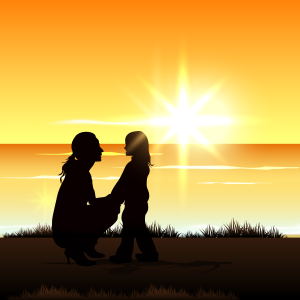The Negative Effects of Divorce on Children
Divorce can be a terrifying, devastating process not only for the soon-to-be-former spouses, but also for any children that may be involved. Though the welfare of your children is always the forefront of a parent’s mind, it is easy to be selfish and want to take care of yourself first when experiencing the immense pain and stress of divorce. However, the effects of divorce on children can be severe, so ensuring they are adjusting as painlessly as possible should be top priority.
Poor Academic Performance
The stresses of divorce can have a negative impact in multiple areas of a child’s life of any age. School is one of the most important aspects of a child’s life, but it is often one of the first areas where children will begin to perform poorly as they experience divorce. The Heritage Foundation found that children with divorced parents, or divorcing parents, are prone to lower grades and have higher drop-out rates. The same report noted that “[c]hildren of divorced parents perform more poorly in reading, spelling, and math.”
The parent who is awarded child custody may decide to leave the area that they have previously lived in, which means uprooting children from their schools. Children will be forced into a new school, and even the prospect of having to attend a new school can have a profoundly negative effect on children.
Behavioral and Developmental Issues
Divorce is becoming increasingly common, with the American Psychological Association reporting that 40 to 50 percent of marriages end in divorce, so parents now need to think about how they can protect their children from the negative effects of divorce. The turmoil of divorce can cause children to lash out or react negatively towards their parents, siblings, friends, and other people. This can be caused by hearing parents fighting, being teased by other childrenabout the divorce, or even if the child blames themselves for the divorce.
The Heritage Foundation also warns about the damaging effect that divorce can have on a child’s behavior and development, by stating that children of divorce “are increasingly the victims of abuse. They exhibit more health, behavioral, and emotional problems, are involved more frequently in and drug abuse, and have higher rates of suicide.”
Every parent thinks that only they can give their child everything they need, but considerthe possibility of joint custody so that your child can see you and your former spouse for as well-rounded a family life as possible. The Divorce of Tulsa Law Office defines three types of child custody:
- Joint Custody: “In joint legal custody, each parent has an equal voice in decision-making about the child’s welfare. Physical custody may involve each parent having extensive or equal time with a child, but the other may exercise more control over long-range decisions.”
- Sole Custody: “In sole custody, the custodial parent can exercise control over child-rearing decisions. The other parent is usually afforded visitation rights.”
- Split Custody: “involves multiple children with different living arrangements, often with shared physical custody between both parents.”
How to Minimize Negative Effects
As divorce can be stressful, it is likely that your child may suffer some negative effects of that stress, so being able to positively help them through the struggles that they may face should be a top priority. Therapy can be a great resource for struggling children, but there are everyday things that you can do to help through such a difficult time.KidsHealth.org has some great tips for helping children through divorce:
- Be Open: Hear your child’s concerns, fears, and stresses out and talk openly about them. Your child should not feel like they are unable to ask questions or talk about their struggles resulting from the divorce.
- But Don’t Overshare: Though you’ll want to be able to speak with your child about your divorce, try not to divulge private details about the court proceedings or interactions between your former spouse and yourself. Don’t speak negatively about your former spouse, and, if you must fight or speak about any legal proceedings, speak away from your children.
Divorce can be painful, but it doesn’t have to have such a harmful effect on your children.

Thanks for the great article. I really enjoyed the read!